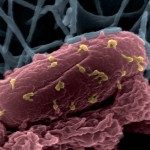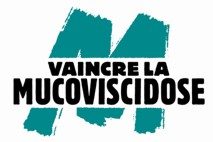About
Pulmonary infections are a leading cause of death worldwide and infections caused by antibiotic-resistant bacteria are steadily increasing. We study how virulent bacteriophages can be used to treat bacterial lung infections. We develop infectious models using clinical isolates of Pseudomonas aeruginosa and Escherichia coli.
The gram negative bacterium Pseudomoas aeruginosa is an opportunistic pathogen involved in several type of human infections. In particular, cystic fibrosis patients are among the most exposed population to P. aeruginosa lung infections. These patients develop chronic infections which are difficult to treat with antibiotics. We isolated bacteriophages infecting P. aeruginosa and showed their efficacy in the treatment of experimental pulmonary infections. Recently, we demonstrated that the curative properties of bacteriophages require the help of the immune system. This synergistic action, which molecular steps are being deciphered, implies that the immune status of patients must be taken into account when applying bacteriophages (listen to the ASM TWiM podcast reporting on this publication).
Another area of investigations is related to ventilated assisted patients who develop pulmonary bacterial infection in intensive care units. Is some hospitals, the gram negative bacterium Escherichia coli is incresingly found as the causative agent of pneumonia in these patients. In collaboration with the team of Prof. Jean-Damien Ricard (Inserm unit IAME UMR 1137 and Louis Mourier Hospital in Colombes), we isolated bacteriophages infecting clinical strains of E. coli isolated from ventilated assisted patients and demonstrated their ability to treat experimental lung infections. We also found that when bacteria are killed in vitro with bacteriophages the level of endotoxins released is lower compared to beta-lactams antibiotics.












